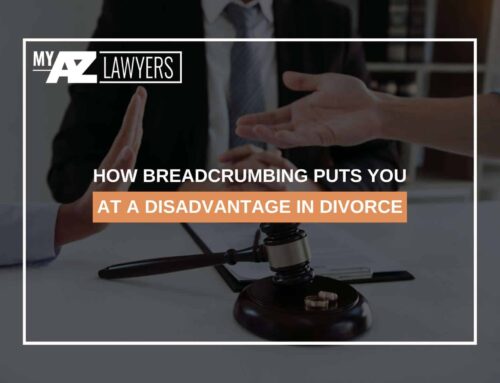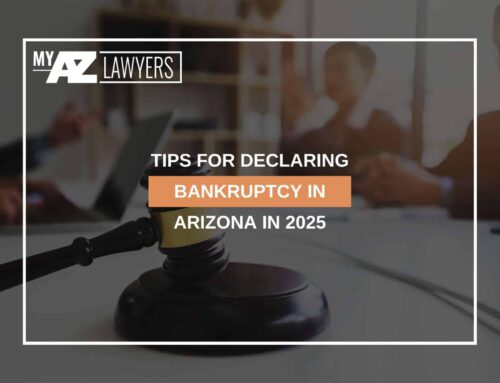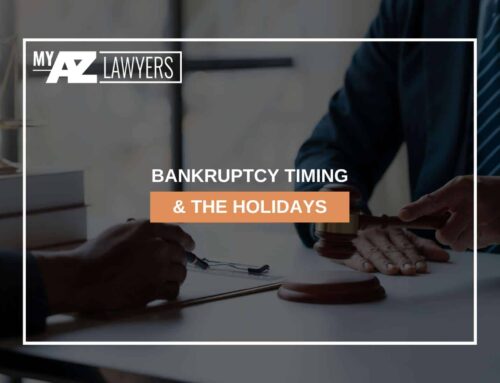Table Of Contents
Does Filing For Bankruptcy Target Your Disposable Income?
Bankruptcy Lawyers Explain How Your Income & Assets Will Be Treated In a Bankruptcy Filing
You may be thinking of filing for bankruptcy to get needed debt relief, but you may be worried that in addition to wiping out your debts, bankruptcy can also wipe out your disposable income. You may worry that you will start “fresh” with nothing to your name – no debt, but no house, no car, and no savings either.
While it’s true that the bankruptcy trustee will look at your ability to pay and will expect you to use your resources to satisfy your debts if possible, that does mean that you will have to drain your resources. In many cases, your disposable income and other assets can be exempted in the bankruptcy. You will need to talk to a bankruptcy attorney to determine how your income and assets will be treated in a bankruptcy filing, but here’s some general information about how disposable income is treated:

What Disposable Income Is?
Your idea of what your “disposable income” is and the court’s idea of what your disposable income is are likely to be two very different things. You may have expenses that you consider very important but the court deems unnecessary. Or you may have plans for the money you have available, while the court may feel the money can be used to pay debt.
The court decides what your disposable income is by looking at your total income and then subtracting all your necessary expenses, such as your rent, utilities, food, health care, taxes, and so on. For some of these expenses, like your rent or mortgage, you will deduct the exact amount, and you will be required to show proof of what you pay. For some of the other expenses, like food or clothing, you would be given a standard deduction, and that amount would be subtracted from your income, not the actual amount you spend. What’s left over after these expenses and deductions are subtracted is usually considered your disposable income, which the court would consider able to be paid toward creditors.
The Means Test
Most people would want to file for bankruptcy, want to file for Chapter 7 bankruptcy, which completely discharges unsecured debts like credit card debt. However, not everyone is eligible to file for Chapter 7 bankruptcy. You have to pass a means test to qualify to file.
The means test compares your income to the state’s median income for your household size. The test looks at the last six months of income. If you have lost a job or have been struggling to work enough hours, that can be good for you. The test also subtracts expenses and deductions to determine your disposable income. If your income is under the threshold and you have a limited disposable income (or none), you are likely to qualify for Chapter 7 bankruptcy.
The Actual Income & Expenses Quiz
A secondary test will be applied to your income and assets, known as the Actual Income and Expenses Test. This test looks at what your income is likely to be going forward. So, even if you lost your job and had low income the past six months, this test would look at whether you recently got a new job and your income is now increasing or is likely to increase, among other things.
Several other schedules are included in this test that look at your personal property and other assets. Many exemptions are allowed for a certain amount of equity in property or other assets. But the test creates a more comprehensive picture of your income and your ability to pay your debts, and it can be used to override the means test and disqualify you from filing for Chapter 7 bankruptcy.
Chapter 13 Bankruptcy
If you are found to have too much disposable income to file for Chapter 7 bankruptcy, you will still be able to file for Chapter 13 bankruptcy, which restructures your debt into a payment plan that you can afford. That payment plan is determined based on your disposable income. The court decides how much you are able to pay to your debts each month, and it creates a three- to five-year payment plan based on that.
At the end of the repayment period, it is possible that some of your debt can be discharged.
Determining disposable income for bankruptcy can be a bit complex. Rather than trying to use online worksheets or schedules, it is important that you talk to a bankruptcy attorney to review your finances together and get a better understanding of how bankruptcy law will apply to your circumstances specifically. An attorney can help you understand what’s possible based on the different deductions and exemptions.
Hire a Qualified Bankruptcy Lawyer In Glendale, AZ
The bankruptcy attorneys at My AZ Lawyers are ready to help you determine the best bankruptcy filing to get the maximum debt relief possible. We’ll review your finances and talk to you about your goals for bankruptcy, and we’ll recommend the best course of action. An attorney will then prepare your filing and all the schedules required to help you get the best possible outcome. Contact us today to schedule a free consultation with a bankruptcy attorney and learn more.
Arizona Offices:
Mesa Location:
1731 West Baseline Rd., Suite #100
Mesa, AZ 85202
Office: (480) 448-9800
Email: [email protected]
Website: https://myazlawyers.com/
Phoenix Location:
343 West Roosevelt, Suite #100
Phoenix, AZ 85003
Office: (602) 609-7000
Glendale Location:
20325 N 51st Avenue Suite #134, Building 5
Glendale, AZ 85308
Office: (602) 509-0955
Tucson Location:
2 East Congress St., Suite #900-6A
Tucson, AZ 85701
Office: (520) 441-1450
Avondale Location:
12725 W. Indian School Rd., Ste E, #101
Avondale, AZ 85392
Office: (623) 469-6603












